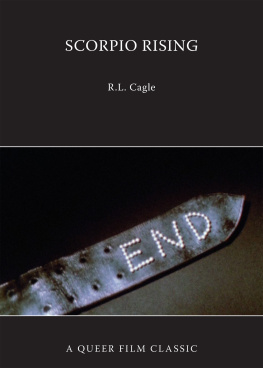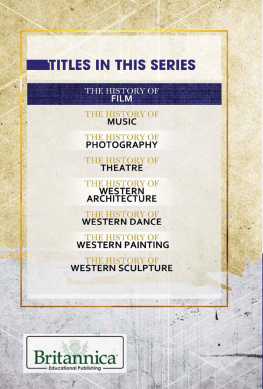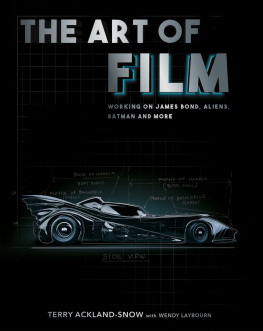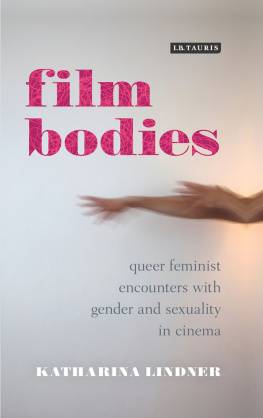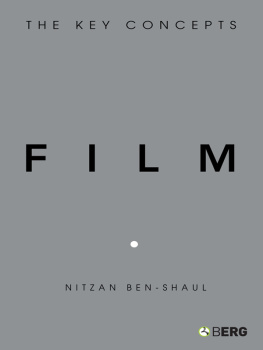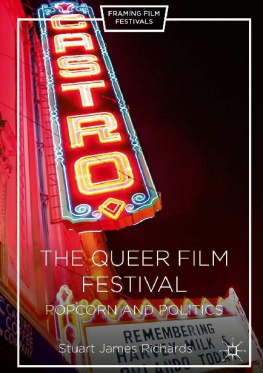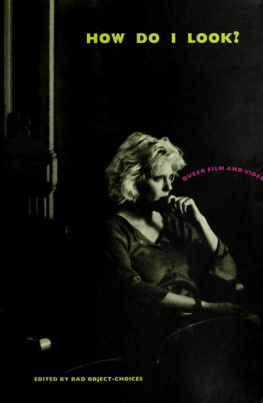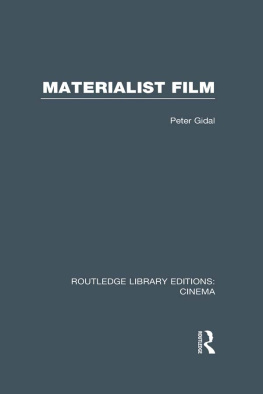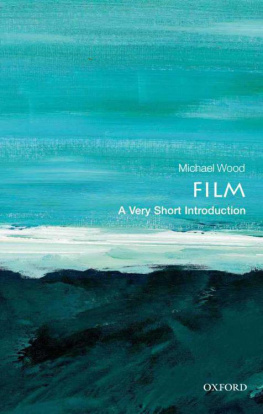
SCORPIO RISING
SCORPIO RISING
A QUEER FILM CLASSIC
R.L. CAGLE
Arsenal Pulp Press | Vancouver |  |
Scorpio Rising: A Queer Film Classic
Copyright 2019 by R.L. Cagle
All rights reserved. No part of this book may be reproduced in any part by any meansgraphic, electronic, or mechanicalwithout the prior written permission of the publisher, except by a reviewer, who may use brief excerpts in a review, or in the case of photocopying in Canada, a license from Access Copyright.
ARSENAL PULP PRESS
Suite 202 211 East Georgia St.
Vancouver, BC V6A 1Z6
Canada
arsenalpulp.com
The author wishes to acknowledge the Research and Publication Committee of the University of Illinois at UrbanaChampaign Library, which provided support for the completion of this research.
Efforts have been made to locate copyright holders of source material wherever possible. The publisher welcomes hearing from any copyright holders of material used in this book who have not been contacted.
Arsenal Pulp Press acknowledges the xmkym (Musqueam), Swxw7mesh (Squamish), and slilwta (Tsleil-Waututh) Nations, speakers of Hulquminum/Halqemylem/hnqminm and custodians of the traditional, ancestral, and unceded territories where our office is located. We pay respect to their histories, traditions, and continuous living cultures and commit to accountability, respectful relations, and friendship.
Queer Film Classics editors: Matthew Hays and Thomas Waugh
Cover and text design by Oliver McPartlin
Cover image frame enlargement from Scorpio Rising courtesy of Kenneth Anger
Edited for the press by Shirarose Wilensky
Proofread for the press by Alison Strobel
Printed and bound in Canada
Library and Archives Canada Cataloguing in Publication:
Cagle, R. L., 1962, author
Scorpio rising / R.L. Cagle.
(Queer film classics)
Issued in print and electronic formats.
ISBN 978-1-55152-761-1 (softcover).--ISBN 978-1-55152-762-8 (HTML)
1. Scorpio rising (Motion picture). 2. Short films--United States--History and criticism. 3. Homosexuality in motion pictures. 4. Anger, KennethCriticism and interpretation.
I. Title. II. Series: Queer film classics
PN1997.S3182C34 2019 | 791.43'72 | C2018-906481-1 C2018-906482-X |
Contents
To my mother, who (thank goodness) shares my obsessions with pop music, underrated films, and sad Korean dramas.
And in memory of my father, who was so nervous about getting me to New York to interview Kenneth Anger that he drove up a down exit ramp on the way to OHare.
I should have realized the rest of the day was going to be a little crazy.
ACKNOWLEDGMENTS
I am deeply grateful to Matthew Hays and Thomas Waugh for inviting me to contribute a volume to this valuable series and, even more, for their continued encouragement and support throughout the writing and editing processes. It is an honor to be included in such an esteemed group. Thanks also to the wonderful folks at Arsenal Pulp PressBrian Lam, Oliver McPartlin, and Shirarose Wilenskyeach of whom has provided immeasurable assistance with the preparation of this manuscript.
Thank you to the staff at the George Eastman Museum, Anthology Film Archives, and Canyon Cinema, for their assistance in verifying facts and locating research material. I owe a special debt of gratitude to the truly amazing Mr Steven Finger of the Los Angeles Free Press, who provided me with invaluable research material and an evening of much-needed laughter and movie talk. Jon Vickers of the Indiana University Cinema kindly sent me a recording of Kenneth Angers post-screening question and answer session at IU that was eye-opening, to say the least, and provided a helpful framework for my analysis. M.M. Serra of the Film-Makers Cooperative always has the right answer, no matter what the question, and has been a kind and thoughtful friend for more years that I care to admit. Robert Haller of the Anthology Film Archives has been the source of invaluable information, by phone and via correspondence, as has John Mhiripiri. The late Bill Landis graciously shared his insights and experiences with me over a series of phone chats and letters, and sent me a lovely collection of materials from his publication Sleazoid Express. Brian Butler, Kenneth Angers creative partner, has graciously facilitated my most recent communications with Mr Anger and has answered several important questions for me.
It was the truly inspiring Constance Penley who first introduced me to the world of avant-garde cinema in a class that changed my life. She, Sharon Willis, and Tom DiPiero continue to inspire my writing and teaching, perhaps without even realizing it, as do the late Craig Owens and Edwin Jahiel, both of whom were generous teachers and gracious human beings.
My dear friends David Desser, Karin Egloff, Frances Gateward, Lalitha Gopalan, Yvonne Hammer, Diana Jaher, Dimitri Katsaros, Aaron Han-joon Magnan-Park, Barbara L. Miller, and Gloria Monti have selflessly shared delicious food, helpful perspectives, and heartwarming encouragement. I cannot thank them enough. A few words from Richard Leskosky or David Tietz (who made even the most boring screenings entertaining with his salty commentariesEarly Bummer is a fave) can restore my energy and interest in film, even on the most dismal of days.
Kenneth Davis, Beth Trotter, Yvonne Rohde, and Lynn Voss religiously trekked with me, rain or shine, to the various opening nights, campus screenings, and midnight movies that shaped our senses of style and humor, from our earliest childhood into the present. Our conversations about film and Hollywood gossip continue to this day.
Margaret Montalbano, who sent me her very own copy of the first edition of Boyd McDonalds Cruising the Movies, has been a beacon of strength and a tireless resource on issues ranging from celebrity eyebrows (Mr McDonald would undoubtedly be impressed) to ice cream treats. To Kerri Baker, a rousing chorus of Ding-Dong! The Witch Is Dead (minus the cape and the Snickers bars) is, I believe, the most suitable way to say thank you.
To Kenneth Anger, who, at the time of this writing in 2018, continues to create and tour, thank you for your stunningly beautiful and always challenging works. Your influence extends around the globe, and your worksboth available and lostare as legendary as anything Hollywood, even at its greatest, could ever have produced.
And finally, to my mother, Florence Cagle: Thank you for being so insistent about my studying and getting a university education and, even more, for always finding something interesting and noteworthy in whatever projects I have undertaken. I wish that everyone in the world could have a mother as supportive and wonderful as you. I love you very much.
SYNOPSIS
Scorpio Rising (Kenneth Anger, 1963) is a silent short film (28 min.) with a pop music soundtrack and sound effects.
The synopsis that follows is far more detailed than those generally provided for feature films. This is because Angers film develops along what might be termed an associative or connotative axis, using juxtapositions of images rather than dialogue or traditional narrative as its primary mode of communication. Providing as detailed a description as possible of these myriad visual and musical elements gives readers a basic road map of where the film goes and how it gets there. That said, I realize that to convey an approximation of the experience of watching would be impossible. As P. Adams Sitney explains in
Next page
